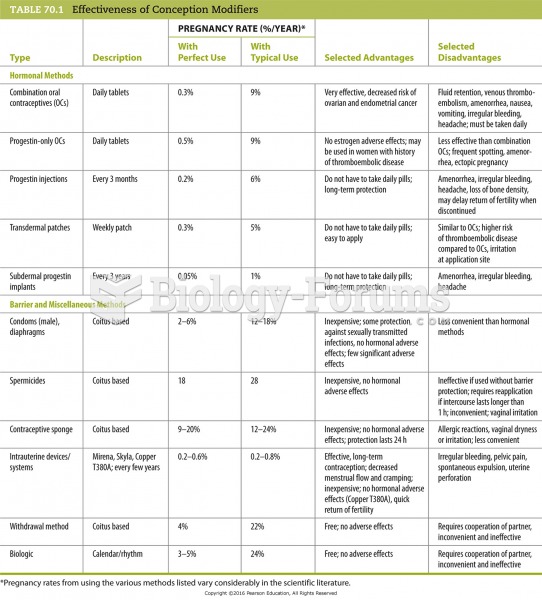|
|
|
Green tea is able to stop the scent of garlic or onion from causing bad breath.
Computer programs are available that crosscheck a new drug's possible trade name with all other trade names currently available. These programs detect dangerous similarities between names and alert the manufacturer of the drug.
The immune system needs 9.5 hours of sleep in total darkness to recharge completely.
Looking at the sun may not only cause headache and distort your vision temporarily, but it can also cause permanent eye damage. Any exposure to sunlight adds to the cumulative effects of ultraviolet (UV) radiation on your eyes. UV exposure has been linked to eye disorders such as macular degeneration, solar retinitis, and corneal dystrophies.
Earwax has antimicrobial properties that reduce the viability of bacteria and fungus in the human ear.







